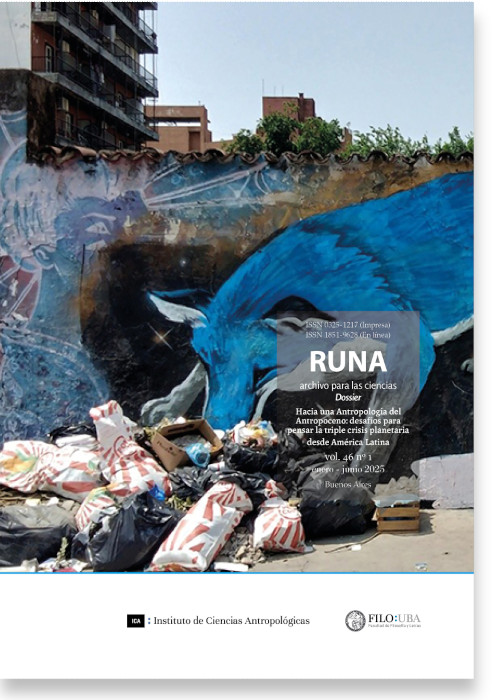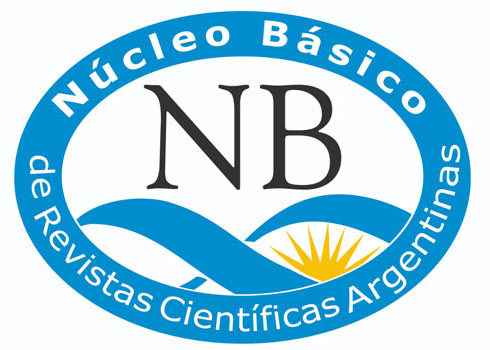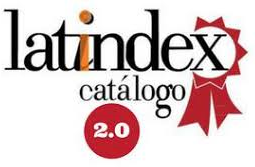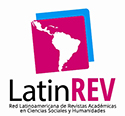Towards an Anthropology of the Anthropocene
Challenges in Thinking About the Triple Planetary Crisis from Latin America
Downloads
References
Amigo, C., y Urquiza, A. (2022). Transdisciplina e interfaz: dos lados de una misma forma. En A. Urquiza y J. Labraña (Eds.), Inter-y transdisciplina en la educación superior universitaria: reflexiones desde América Latina (pp. 19-40). Universidad de Chile, Vicerrectoría de Investigación y Desarrollo, Núcleo de Investigación en Inter y Transdisciplina para la Educación Superior (NITES). https://doi.org/10.34720/r8ts-gj33
Arach, O., y Rabinovich, S. (2021). Antropoceno: Un caleidoscopio para vislumbrar el fin (del Holoceno). Avá 39. https://www.ava.unam.edu.ar/index.php/ava-39-dossier-antropoceno-un-caleidoscopio-para-vislumbrar-el-fin-del-holoceno
Asafu-Adjaye, John, Linus Blomqvist, Stewart Brand, et al. (2015). An Ecomodernist Manifesto. Oakland, CA: The Breakthrough Institute. http://www.ecomodernism.org/.
Barnes, Jessica, Dove, Michael., Lahsen, Myanna, Mathews, Andrew., Mcelwee, Pamela., Mcintosh, Roderick... Y Yager, Karina (2013). “Contribution of anthropology to the study of climate change”. Nature Climate Change, 3(6), 541–544.
Bateson, G., y Alcalde, R. (1998). Pasos hacia una ecología de la mente. Buenos Aires: Lohlé-Lumen.
Carabajal, M. I., Ramos Quispe, F. B., y Romero Nina, S. et al. (2025). Lights and shadows of nature-based solutions in the Anthropocene: Perspectives from indigenous narratives in Latin America. Mitigation and Adaptation Strategies for Global Change, 30(3). Springer Nature. https://doi.org/10.1007/s11027-024-10189-3
Carabajal, M. I., Scanio, P., Lezcano, M., Joosten, G., Fresia, B., Borsella, F., De Chazal, A., Dekmak, W., Fantozzi, A., González Dubox, R., López Castro, B., Lapalma, G., Morlesín, M., Pastorino, N., Taddei Salinas, L., Tamburrini, C., y Velarde, M. (2024). Decolonizando la antropología en el Antropoceno: (Re)imaginando acciones y respuestas colectivas frente a la crisis socioecológica. En Antropología. Revista Interdisciplinaria del INAH. https://revistas.inah.gob.mx/index.php/antropologia/article/view/21111/22518
Carabajal, M. I. (2023). Suturar la tierra en el Antropoceno: Ciencia, arte, educación y territorio. Extensión en red, 14. https://doi.org/10.24215/18529569e044
Carabajal, M. I., Scanio, P., Pastorino, N., y Malovrh, N. (2023). Las dimensiones sociales y políticas del cambio climático: Aportes para ampliar la imaginación. Espacios de crítica y producción, (59). Recuperado de http://revistascientificas.filo.uba.ar/index.php/espacios/article/view/12769
Chakrabarty, D. (2019) El clima de la Historia: Cuatro tesis. Utopía y Praxis Latinoamericana, vol. 24, núm. 84.
Crutzen, P. J., y Stoermer, E. F. (2000). The ‘Anthropocene’. Global Change Newsletter, 41, 17–18.
Descola, P. (2017). ¿Humano, demasiado humano? Desacatos, (54), 16–27.
Escalera, J. y Ruiz, E. (2011) Resiliencia Socioecológica: aportaciones y retos desde la Antropología. Revista de Antropología Social, 20, pp. 109-135
Haraway, D., Ishikawa, N., Gilbert, S. F., Olwig, K., Tsing, A. L., y Bubandt, N. (2016). Anthropologists Are Talking – About the Anthropocene. Ethnos, 81(3), 535–564. https://doi.org/10.1080/00141844.2015.1105838
Haraway, D. (2015). Anthropocene, Capitalocene, Plantationocene, Chthulucene: Making Kin. Environmental Humanities, 6(1), 159–165. https://doi.org/10.1215/22011919-3615934
Hulme, M. (2011). Meet the humanities. Nature Climate Change, 1, 177–179. https://doi.org/10.1038/nclimate1150
Hulme, Mike. (2009). Why We Disagree about Climate Change: Understanding Controversy, Inaction and Opportunity. Cambridge: Cambridge University Press.
Ingold, T. (2000). The perception of the environment: Essays in livelihood, dwelling and skill. Londres/Nueva York: Routledge.
Jasanoff, S. (2003). Technologies of humility: Citizen participation in governing science. Minerva, 41(3), 223–244.
Jasanoff, Sheila. (2004). “The idiom of coproduction”. En S. Jasanoff (ed.) States of Knowledge: the coproduction of knowledge and social order. Páginas. 1-12. London: Routledge.
Kaltmeier, O., López Sandoval, M. F., Pádua, J. A., y Zarrilli, A. G. (2024). El Antropoceno como crisis múltiple: Perspectivas desde América Latina. Volumen I: Uso de la tierra. Ciudad Autónoma de Buenos Aires: CLACSO; Guadalajara: CALAS. Recuperado de: http://calas.lat/es/handbook/volumen-uso-de-la-tierra [20-01-2025]
Lussault, M. (2019 ) “El Antropoceno urbano: hacia una transformación radical de los modos de vida”, conferencia, IDAES, Buenos Aires. <https://noticias.unsam.edu.ar/2019/07/29/antropoceno-urbano-hacia-una-transformacion-radical-de-los-modos-de-vida/ > [22 de enero de 2025].
Marquez, F. (2024) Derivas para una antropología colaborativa en el Antropoceno urbano. Jardín, plaza y tercer paisaje. ALTERIDADES, 2024, 34 (67): Págs. 105-118 https://doi.org/10.24275/SOBZ8479
Milton, K. (1996). Environmentalism and cultural theory: Exploring the role of anthropology in environmental discourse. Londres y Nueva York: Routledge.
Malm, A., y Hornborg, A. (2014). The geology of mankind? A critique of the Anthropocene narrative. The Anthropocene Review, 1(1), 62–69. https://doi.org/10.1177/2053019613516291
Moore, J. W. (2017). The Capitalocene, Part I: On the nature and origins of our ecological crisis. The Journal of Peasant Studies, 44(3), 594–630. https://doi.org/10.1080/03066150.2016
Rayner, S y Malone E. (1998). Human Choice and Climate Change. Oxford
Rappaport, R. (1971). Nature, culture and ecological anthropology. En H. L. Shapiro (Ed.), Man, culture and society. Oxford: Oxford University Press.
Rockström, J., Steffen, W., Noone, K., Persson, Å., et al. (2009). Planetary boundaries: Exploring the safe operating space for humanity. Ecology and Society, 14(2), 32.
Sandroni, L., Ramos Quispe, F., House-Peters, L., Alonso-Yanez, G., Carabajal, M. I, Valentine, M., Schweizer, S., Murisa, M., Roy, N., de Vernal, A., Arbour, N., y Stewart Ibarra, A. (2023). Transdisciplinarity 101: Short-Term Training in Knowledge CoProduction to Face Global Environmental Change. Journal of Science Policy y Governance, 22(2). https://doi.org/10.38126/JSPG220207
Steffen, W., Broadgate, W., Deutsch, L., Gaffney, O., y Ludwig, C. (2015). The trajectory of the Anthropocene: The Great Acceleration. The Anthropocene Review, 2(1), 81–98. https://doi.org/10.1177/2053019614564785
Svampa, M. (2019). El Antropoceno como diagnóstico y paradigma: Lecturas globales desde el sur. Utopía y Praxis Latinoamericana, 24(84), 33–54.
Swistun. D. y Le Gall, J. (2019). Escuela Latinoamericana del Antropoceno Urbano. Dossier para el trabajo en territorio. IDAES-UNSAM, Ecole urbaine de Lyon, IFA. <https://www.youtube.com/watch?v=pB-l7ydKi2Y> [22 de enero del 2025]
Swistun, D. (2020). Interdependencia ecológica humanos-no humanos, arte y dispositivos pedagógicos de la Primera Escuela Latinoamericana del Antropoceno Urbano 2019. En Conversatorio Hacer Antropología en la Era del Antropoceno. Canal FiloUBA <https://www.youtube.com/watch?v=ZQm5AdK7gHA> [22 de enero del 2025]
Swistun, D. (2022) Antropoceno. Ciclo Clase pública de la Manzana de las Luces. Buenos Aires. <https://youtu.be/7aSbsTpsuIM?feature=shared> [22 de enero del 2025]
Taddei, R. (2017). Meteorologistas e profetas da chuva: Conhecimentos, práticas e políticas da atmosfera. San Pablo: Terceiro Nome.
Taddei, R., y Hidalgo, C. (2016). Antropología posnormal. Cuadernos de Antropología Social, 43, 21–32.
The Anthropocene in Chile: Toward a new pact of coexistence. (2017). Las Cruces. Environmental Humanities, 11(2), 467–476. https://doi.org/10.1215/22011919-7754578
Tola, F., dos Santos, A., Restrepo, J., Rodrigues Lopes, G., Sarra, S., De Chazal, A., Varela, M. (2019) Entre el futuro que ya llegó y el pasado que nunca pasó: diplomacias chaqueñas en el antropoceno. MANA 25(3): 809-836. http://dx.doi.org/10.1590/1678-49442019v25n3p809
Trishler, H. (2017). El Antropoceno, ¿un concepto geológico o cultural, o ambos? Desacatos, (54), 40–57.
Ulloa, A. (2017). Dinámicas ambientales y extractivas en el siglo XXI: ¿Es la época del Antropoceno o del Capitaloceno en Latinoamérica? Desacatos, (54), 58–73.
United Nations Framework Convention on Climate Change (UNFCCC). (2022). What is the Triple Planetary Crisis? https://unfccc.int/news/what-is-the-triple-planetary-crisis
UNEP. (2021). Making Peace with Nature: A scientific blueprint to tackle the climate, biodiversity and pollution emergencies. United Nations Environment Programme report. Nairobi. https://www.unep.org/resources/making-peace- nature
Urquiza, A. (2023). Límites de la discusión sobre el Antropoceno. Estudios Públicos, (171), 209-217. https://doi.org/10.38178/07183089/0848230717
Witze, A. (2024). It’s final: the Anthropocene is not an epoch, despite protest over vote. Nature. Advance online publication. https://doi.org/10.1038/d41586-024-00868-1
Zalasiewicz, J., Adeney Thomas, J., Waters, C. N., Turner, S., y Head, M. J. (2024). The meaning of the Anthropocene: Why it matters even without a formal geological definition. Nature. https://pubmed.ncbi.nlm.nih.gov/39187674/
Copyright (c) 2025 María Inés Carabajal, Catalina Amigo Jorquera, Débora Swistun, Anahí Urquiza Gómez

This work is licensed under a Creative Commons Attribution 4.0 International License.

Runa, archivos para las ciencias is a publication of the Instituto de Ciencias Antropológicas, Facultad de Filosofía y Letras, Universidad de Buenos Aires and is distributed under a Creative Commons Attribution 4.0 International License.
Runa maintains its commitment to the policies of Open Access to scientific information, considering that both scientific publications and publicly funded research should circulate on the Internet freely, free of charge and without restrictions.
The contents and opinions expressed in published articles are the sole responsibility of their authors.



















